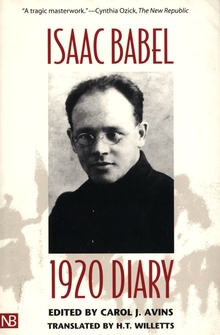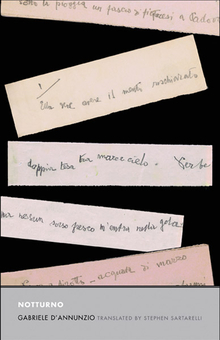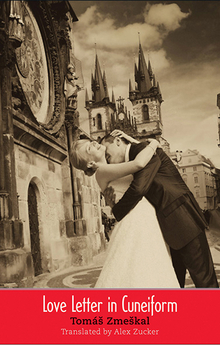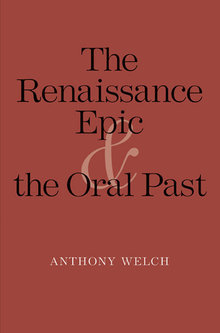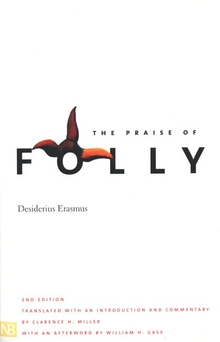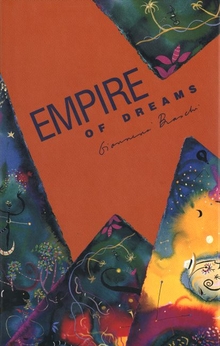1920 Diary
WARNING
You are viewing an older version of the Yalebooks website. Please visit out new website with more updated information and a better user experience: https://www.yalebooks.com
Isaac Babel; Edited by Carol J. Avins; Translated by H. T. Willetts
“Babel’s 1920 Diary, the source for many of his remarkable Red Cavalry stories, is itself as remarkable as the stories, particularly when one considers that the diarist was a journalist of only twenty-six. The staccato sentences in which Babel rapidly describes the horrific details of revolutionary brutality have the impact of an accomplished style, one that in its spontaneously elliptical way is strangely no less artful than the artfully nuanced directness that is the triumph of Red Cavalry.”—Philip Roth
“An electrifying translation accompanied by an indispensable introduction. . . . Babel’s journey is a Jewish lamentation . . . a tragic masterwork.”
—Cynthia Ozick, The New Republic
“A precursor of Holocaust literature, and more powerful in its effect than any Holocaust literature that I have managed to read.”—Harold Bloom, New York Times Book Review
"In his Diary, Babel produced a unique portrait of gruesome ruin in the name of the revolution which he welcomed but which also frightened him. Its cruelty brought freedom and the brutality he hated. He witnessed the ravishes of revolution, its intoxicating, astounding power and violence. At the same time, his sobriety led him from euphoria to its human truth."—Arnost Lustig
"Babel's 1920 Diary, the source for many of his remarkable Red Cavalry stories, is itself as remarkable as the stories, particularly when one considers that the diarist was a journalist of only twenty-six. The staccato sentences in which Babel rapidly describes the horrific details of revolutionary brutality have the impact of an accomplished style, one that in its spontaneously elliptical way is strangely no less artful than the artfully nuanced directness that is the triumph of Red Cavalry."—Philip Roth
"The 1920 Diary illuminates the creative process that transmuted Babel's immediate responses to his Russo-Polish war experience into the masterful vignettes of that cycle. Perhaps even more important, it provides a unique insight into Babel's vaunted ambivalence, into his actual attitudes toward war, revolution, violence, his own Jewishness, and Judaism."—Victor Erlich, Yale University
"The 1920 Diary exhibits the transformation of the brilliant, bookish Babel into a half-reluctant, half-enchanted Cossack, an outsider turned inside out."—Chicago Tribune
“An electrifying translation accompanied by an indispensable introduction. . . . When all is said and done—and much is said and done in these blistering pages: pillaged churches, ruined synagogues, wild Russians, beaten Poles, mud, horses, hunger, looting, shooting—Babel’s journey is a Jewish lamentation . . . . A tragic masterwork.”—Cynthia Ozick, New Republic
"An astonishing historical record set down with godlike prowess and clarity. . . . Babel's Diary stands as a tragic masterwork of breakneck cinematic 'dailies', those raw, unedited rushes that expose the director to himself."—Cynthia Ozick, New Republic
"A precursor of Holocaust literature, and more powerful in its effect than any Holocaust literature that I have managed to read."—Harold Bloom, New York Times Book Review
"The diary is of far more than historical interest. It is brilliant in itself, a gem of compressed, unsparing, truthful observation."—Richard Bernstein, Herald Tribune
"All through the Diary, Babel deplores Russian gloom, inertia, incompetence and squalor, the last two defects shared by the Cossacks. His own amazement and glee at being where he is, doing what he does, putting up with what he puts up with, are too intoxicating to be suppressed by his tragic insights. The impact is stunning."—Gabriele Annan, London Review of Books
"Brought to light in the last years of the glasnost and finally translated into English, Babel's 1920 Diary. . .is an astounding book. In sparse, artfully fractured language, it documents an orgy of ethnic violence and provides a window on a culture which in 20 short years would be extinct. . .Isaac Babel's 1920 Diary is a gripping visit to a lost world. Few readers will return from it unfazed."—Andrew Berg, Detour Magazine
"These diaries, vividly translated by H.T. Willetts, show us what Babel saw through his unblinking eyes."—Donald Winkler, The Montreal Gazette
"Effective both in its power of description and as a historical record."—Zev Ben Shlomo, Jewish Chronicle
"A genius preparing a work of genius. . . . The impact is stunning."—Gabriele Annan, Book Review Digest
"In an illuminating and informative introduction, Carol J. Avins fills in the historical and literary background to the diary, pointing out that the diary not only offers a glimpse of the young writer but also reflects the tension with his Jewish identity which was strong and persistent. For those not familiar with Babel this is a marvelous introduction. For those who already have Babel on their bookshelf, this diary is like meeting a favorite author afresh. A wonderful, if necessarily complex, encounter."—Mordechae Beck, The Jerusalem Post
"1920 Diary tells of Babel's years with the Cossacks. It's often painful reading, but it's so precise it's difficult to put down. Unlike most writers, Babel manages to capture an image with merely a stroke or two of vibrant, searing words."—Elizabeth Applebaum, Detroit Jewish News
"One of the great retrieved manuscripts of twentieth-century literature."—Boston Globe
"With its many, conflicting layers, Babel's diary is one of the darkest, most disturbing books I have read, raw material, if you like, for the 'Red Cavalry' stories. But it stands as a masterpiece of war writing in its own right. It confirms both Babel's greatness as a writer and the tragedy of being Jewish in eastern Europe in the first half of the twentieth century."—David Herman, Jewish Chronicle
"Highly worthwhile."—Thomas Hove, Review of Contemporary Fiction
"The 1920 Diary is a praiseworthy contribution to the Babel scholarship, also accessible in style to nonspecialists."—Zsuzsa Hetenyi, Studies in Contemporary Jewry
Publication Date: February 8, 2002

